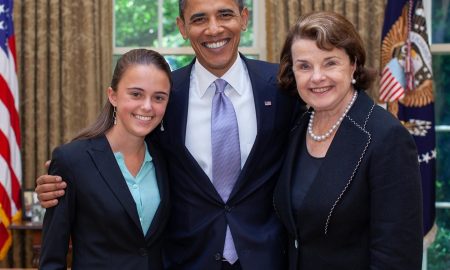
The Experts Finally Break their Silence: Are Trainers Really Allowed to Give Fitness Advice?

We often seek our trainer’s advice when we want to make sure we’ve made definite progress in our workout routine. Our fitness coach guides us to make sure we’ve done our exercises correctly without injuring or exhausting ourselves.
At the same time, they evaluate our development to make sure our body becomes physically fit and healthy. But are they also entitled to give some diet advice and dictate us on what foods should we eat? Here’s what the dietitian experts have to say.
The Dilemma
According to renowned dietitian Lisa Rutledge, while diet and fitness seem to co-exist with each other, most trainers only spend a few hours of training or lecture when it comes to nutrition.
They spend more of their time educating themselves about physical education to determine the right sets of exercises to undergo depending on their client’s fitness goals. And yet, she got appalled to see most of them advising their clients on what to eat as if they’re diet experts.

AstroStar/Shutterstock
Since the trainer’s expertise lies in physical education, so you should only seek a piece of advice from them about exercise
While Lisa understands how most people want one-stop shopping, she advises against doing it. According to her, she doesn’t give information to her clients on how to squat, do push-ups and other exercises (since she isn’t a gym expert, to begin with), so trainers should also do the same and not give advice about nutrition.
The Difference in Culture
Lisa says gym shouldn’t equate to diet, especially since not all types of exercise can contribute to weight loss. Some gym members do training to develop muscles and gain more weight. While some want to build stronger body physique to improve their athletic performance.

VGstockstudio/Shutterstock
Lisa says food misguidance can lead to an eating disorder, which halts people from being healthy and accomplishing their goals.
She advises her clients to consult with a registered dietitian. Despite the trainer’s confidence in recommending what to eat, she reiterates they lack the proper knowledge, training, and expertise on how to change one’s diet lifestyle. Moreover, a registered dietitian knows the ins and outs of nutrition to determine what works for you best.
A Nutritionists’ Role
They take into consideration your body structure, medical background and restrictions, preference, and metabolism before they design a diet plan for you. If you have specific diet restrictions like allergies and food intolerance (e.g., gluten, dairy, vegetarian, etc.), your nutritionist can re-design your customized meal plan to make sure your body gets all the nutrients it needs.
The Study
The other experts seem to back Lisa’s claims. According to Australian researchers’ study between the nutritionists and trainer’s diet expertise, the latter scored lower than registered dietitians in three sections namely: dietary guidelines, diet/disease relationships, and nutritional content of foods.

Minerva Studio/Shutterstock
The researchers urge the people to consult with a registered dietitian to prepare a healthy meal plan based on their personal needs.
Both dietitians and trainers only scored a tie in choosing healthy foods in general. This study shows how the trainer’s knowledge when it comes to nutritional content. The proponents of the research added that undergraduate trainers also didn’t score higher when it comes to exercise science compared to trainers who completed a related degree.
The Dangers
Lisa also reiterates the dangers of seeking universal “nutrition advice” from trainers who think they know everything about nutrition. According to her, most people fall in undergoing diet fads because these trainers give recommendations about trying a specific diet. While these diet plans can help you lose weight or be healthy for some time, most of them aren’t sustainable in the long run.
It’s because you’re forcing yourself into adopting a specific diet without considering your body type, metabolism rate, medical conditions, and preferences. To break this horrible cycle, Lisa recommends hiring a registered dietitian on local gyms to help the clients aid their body positivity with food positivity and achieve a healthier and fitter body.
More in Health & Well-being
-
`
Home Safety: Keeping Bugs and Spiders Away From Your Home
Spiders may look a bit intimidating with their eight legs and beady eyes, but did you know that most of them...
December 27, 2023 -
`
Why Adults With ADHD Are 3x More Likely to Develop Dementia
We have all heard of ADHD, haven’t we? Hyper kids, distractions galore, restless minds – these are images we often associate...
December 11, 2023 -
`
Signs of Emotional Connection in Relationships
Building a strong connection with someone isn’t just about being in sync or sharing hobbies—it’s about that deeper bond, where you...
December 4, 2023 -
`
Hollywood’s Shortest Marriages: Britney Spears, Carmen Electra & More!
In the glitzy world of Hollywood, where fairy tales often unfold on the silver screen, there exists a flip side—a realm...
December 3, 2023 -
`
The Surprising Benefits of Unplugging
In today’s hyper-connected world, where we are constantly bombarded with notifications, messages, and the allure of social media, disconnecting may seem...
November 26, 2023 -
`
How “Looking Your Best” Improves Our Wellbeing
Most of us have had moments standing in front of our closet, deciding on an outfit for the day. And we...
November 15, 2023 -
`
Meet the Woman Who ALMOST Married Barack Obama
Barack Obama’s life has been a captivating narrative, often told and retold, with each revelation adding layers of intrigue to his...
November 5, 2023 -
`
The Rise of Caviar Bumps, Thanks to Gen Z
In an intriguing twist of culinary culture, millennials and Gen Zers are drawn to an unusual indulgence – fish eggs, or...
October 28, 2023 -
`
Everything You Need to Know About Acid Reflux, Heartburn and GERD
Ever had that burning-in-the-chest sensation after a meal? Or perhaps you have lain awake at night with an odd sour taste...
October 17, 2023















You must be logged in to post a comment Login